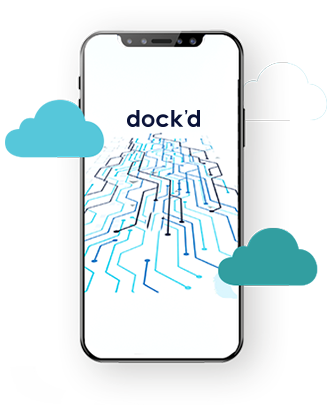The National Disability Insurance Scheme (NDIS) is a landmark reform that aims to provide choice and control to people with disability over the supports they need to live an ordinary life. However, as with any major change, there are also challenges and difficulties that arise along the way. In this blog post, we will explore some of the common challenges that NDIS Service Providers face and how they can overcome them.
- Understanding and complying with the NDIS Quality and Safeguards Commission standards and rules: The NDIS Commission is an independent agency that regulates the quality and safety of NDIS services and supports, as well as the rights and responsibilities of participants and providers. The NDIS Commission has a set of standards and rules that providers must follow to ensure they deliver high-quality and safe services to participants. These include requirements for worker screening, incident management, complaints handling, behaviour support, restrictive practices, and more. Providers need to understand and comply with these standards and rules, as well as undergo audits and assessments to demonstrate their compliance.
- Managing cash flow and financial sustainability: The NDIS operates on a fee-for-service model, which means that providers only get paid after they deliver services to participants. This can create cash flow issues for providers, especially if they have high upfront costs or long payment cycles. Providers need to manage their cash flow carefully and plan ahead for their expenses and income. They also need to monitor their financial performance and sustainability, as well as adjust their pricing and service offerings to suit the market demand and competition.
- Recruiting and retaining qualified and skilled staff: The NDIS has created a huge demand for workers in the disability sector, which is expected to grow even further in the coming years. However, there is also a shortage of qualified and skilled staff who can deliver quality services to participants with diverse and complex needs. Providers need to recruit and retain staff who have the right qualifications, skills, experience, values, and attitudes for working in the NDIS environment. They also need to invest in training and development, as well as provide adequate support and supervision, to ensure their staff are competent and confident in their roles.
- Engaging and retaining participants: The NDIS is a competitive market where participants have the power to choose their providers and change them at any time. Providers need to engage and retain participants by delivering services that meet their needs, goals, preferences, and expectations. They also need to communicate effectively with participants and their families or carers, as well as build trust and rapport with them. Providers need to be responsive, flexible, innovative, and customer-focused in their service delivery.
- Adapting to changing policies and regulations: The NDIS is a complex and evolving system that is constantly changing in response to feedback from stakeholders, emerging issues, best practices, research findings, and more. Providers need to keep up with these changes and adapt their policies and procedures accordingly. They also need to be aware of the implications of these changes for their operations, finances, staff, participants, and other stakeholders.
- Accessing relevant information and resources: The NDIS is a vast and diverse system that involves multiple agencies, organisations, programs, platforms, tools, documents, guidelines, frameworks, etc. Providers need to access relevant information and resources that can help them understand the NDIS better, improve their service quality and outcomes, comply with their obligations, solve problems, access opportunities, etc. However, finding and accessing these information and resources can be challenging due to the volume, variety, currency, and reliability of them.
- Collaborating with other providers and stakeholders: The NDIS is a collaborative system that requires providers to work with other providers and stakeholders to deliver coordinated and holistic services to participants. These include other NDIS providers (e.g., allied health professionals, support coordinators), mainstream services (e.g., health, education), community organisations (e.g., advocacy groups, peer support networks), government agencies (e.g., NDIA, NDIS Commission), etc. Providers need to establish and maintain effective relationships with these stakeholders, as well as communicate clearly and respectfully with them.
- Managing risks and uncertainties: The NDIS is a dynamic and uncertain system that involves various risks and uncertainties for providers. These include operational risks (e.g., service delivery disruptions, staff turnover), financial risks (e.g., payment delays, pricing changes), compliance risks (e.g., breaches of standards and rules, penalties), reputational risks (e.g., negative feedback, complaints), strategic risks (e.g., loss of market share, reduced competitiveness), etc. Providers need to identify and assess these risks and uncertainties, as well as implement strategies to mitigate or manage them.
- Innovating and improving service quality and outcomes: The NDIS is a competitive and outcome-focused system that encourages providers to innovate and improve their service quality and outcomes. Providers need to monitor and evaluate their service delivery and outcomes, as well as seek feedback from participants and other stakeholders. They also need to identify and implement opportunities for improvement, innovation, and best practice. Providers need to be proactive, creative, and agile in their service improvement and innovation.
- Balancing the needs and expectations of different stakeholders: The NDIS is a complex system that involves different stakeholders with different needs and expectations. These include participants, families or carers, staff, NDIA, NDIS Commission, other providers, mainstream services, community organisations, government agencies, etc. Providers need to balance the needs and expectations of these stakeholders, as well as manage any conflicts or tensions that may arise among them. Providers need to be respectful, inclusive, and transparent in their stakeholder engagement.
dock’d can help you master these challenges and thrive! Contact us for more information or to arrange a demonstration.






